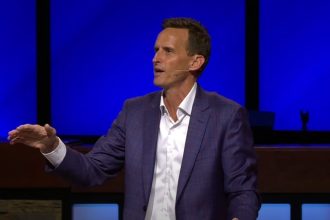
Shirley Somuah, a partner at CardinalStone Capital Advisers
Healthcare and consumer-focused industries are the two sectors in Nigeria where Shirley Somuah, a partner at the private equity firm CardinalStone Capital Advisers, sees the most significant opportunities. Somuah shared these insights during a panel discussion at a conference hosted by the African Private Capital Association in Johannesburg.
In terms of healthcare, she pointed to an increased focus on localising access to care and providing high-quality services. Her firm sees opportunities spanning from direct care provision to health insurance.
In 2022, CardinalStone invested $6 million in Nigerian healthcare group AfyA Care. In an earlier interview with How we made it in Africa, Femi Ogunjimi, also partner at CardinalStone, highlighted one of the key challenges in Nigerian healthcare: a lack of scale in hospitals and related businesses. The largest private hospitals in Nigeria have at most 250 beds, in contrast to private hospitals in China and India, which can have more than 2,000 beds. These larger hospitals operate at a scale that enables them to provide quality healthcare at an affordable cost.
“AfyA Care has tried to build an integrated platform that not only caters to low- and middle-income customers, but also the high-end patients. They cater to low and medium-end patients through their R-Jolad brand, under which they have acquired three hospitals and will have 215 beds by the end of the year. At the same time, they are in the process of building a hospital that will focus on serving more higher-end consumers,” Ogunjimi explained.
Read our full interview with Femi Ogunjimi: Investing in Nigerian private healthcare – insights from dealmaker
Somuah is also bullish on consumer-focused businesses. She cited Nigeria’s population of over 200 million people, who require food, shelter, and access to services. Earlier this year, CardinalStone sold its stake in the gym chain i-Fitness. When CardinalStone initially invested in 2019, i-Fitness had 2,000 members. Today, the business boasts over 28,000 active members and employs more than 500 people across 21 locations in four Nigerian cities.
Read our full interview with i-Fitness founder Foluso Ogunwale: A chain of gyms in Nigeria – The entrepreneur behind iFitness
“There’s a huge consumption opportunity, which has been underserved the last several decades, and continues to give rise to good investment opportunities,” Somuah said.
She emphasised that the past 12 months have been particularly challenging in Nigeria. Since assuming office in May last year, President Bola Tinubu has implemented several reforms. While investors see these measures as necessary for Nigeria’s long-term stability, they have had an adverse impact on the economy. Tinubu’s elimination of a longstanding fuel subsidy has led to soaring transportation costs, and the relaxation of foreign currency controls has contributed to a significant depreciation of the Nigerian naira. The local currency hit record lows of over NGN 1,600 to the US dollar in recent months, although it has since strengthened considerably. Inflation surged to 33.20% in March, marking its highest point in 28 years.
Although the Nigerian economy is not out of the woods yet, according to Somuah, she pointed out that the currency has stabilised and expressed optimism for the future.







